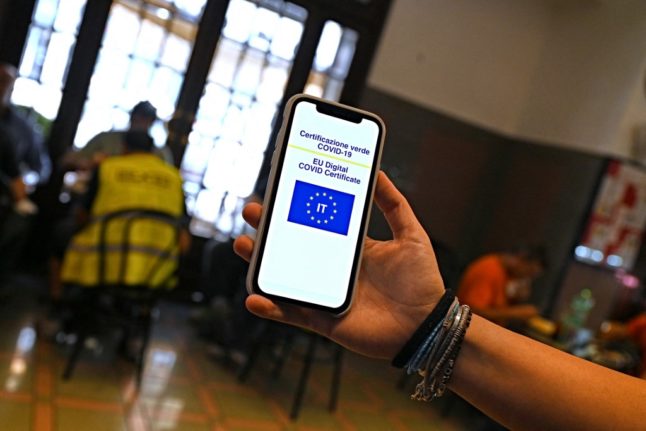The certificate is now compulsory to access almost all indoor areas, including restaurants, bars, fitness centres, sports events, cultural facilities, as well as some gatherings such as weddings in private venues.
People caught breaking the rules could be fined 100 francs, while a much heftier penalty of up to 10,000 francs could be slapped on businesses that don’t comply with the requirement.
Police in each canton are responsible for monitoring compliance and issuing fines.
But how diligent and thorough will the police be?
READ MORE: TODAY: Switzerland extends Covid certificate for entry to restaurants and bars
For Adrian Gaugler, spokesperson for the Conference of Cantonal Police Commanders, there is no question of being careless or too lenient.
“The police will apply the extension of the compulsory certificate decided by the Federal Council”, he told the Blick newspaper.
However, due to lack of resources, the cantonal police forces will only be able to carry out random checks or respond to reports of non-compliance.
“The police will carry out checks within reason”, according to Corina Winkler, spokesperson for the Aargau cantonal police.
And what will happen if there is a lack of cooperation?
“The first step is to seek a dialogue but if necessary, we will also react with administrative fines or we will denounce those who do not comply with the measures to the public prosecutor’s office “, she added.
The canton of Solothurn will also rely on the ‘soft’ approach first.
“It is very important for us to proceed in a proportionate manner and with common sense,” said spokesperson Thalia Mosimann. “We know that the current situation is difficult for everyone, and we take that into account as much as possible.”
Bern takes a similar approach.
“In the beginning, our staff will probably talk to restaurant owners as part of their daily patrol activities. But a fine is to be expected in the event of a violation”, said spokesperson Lena Zurbuchen.
“As always, these judgments are made on a case-by-case basis. We choose the smoother path that leads to law enforcement”.
However, all the police forces make it clear that in the event of flagrant violations or unreasonable persons, action — fines or criminal prosecution in extreme cases of repeated non-compliance —will be taken.



 Please whitelist us to continue reading.
Please whitelist us to continue reading.
Member comments